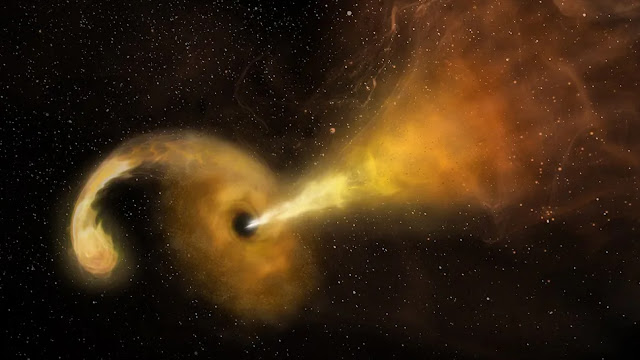Black holes have been the subject of fascination and study for years, yet they remain one of the universe's most enigmatic objects.
Their complexities boggle even the most seasoned scientists, and now there's a new twist: black holes 'burping' stars.
What's New: The 'Burping' Phenomenon
Astronomers are scratching their heads over this one. It's like having a math problem that suddenly starts rewriting its own equations. But what is this 'burping' and why has it stumped experts? Let's dig in.
The Science Behind Black Holes
Basics of Black Holes
Think of a black hole as the universe's most voracious eater. It gobbles up everything—light, matter, even time. Once something crosses the event horizon, it's gone for good.
What is a Stellar 'Burp'?
A 'burp' in this context isn't what you'd think. It's a sudden expulsion of material—likely gas or smaller stellar objects—from the black hole. Not exactly your everyday cosmic occurrence.
The Forces at Play
Picture a soda can shaking up and then being opened. That's analogous to the burst of material from a black hole. But what forces are causing this?
How Astronomers Study Black Holes
Traditional Methods
Astronomers typically use techniques like X-ray spectroscopy and radio wave analysis to study these enigmatic entities.
The Role of Telescopes
Telescopes, especially those specialized for space observation like the Hubble, are vital tools in examining black holes.
Specialized Instruments
Newer tools and techniques are being developed to deepen our understanding, such as gravitational lensing and interferometry.
The Latest Observations
What Researchers Found
The observations show black holes 'burping' stars in a way that doesn't align with current scientific theories. It's as if nature decided to throw a curveball.
Why It's Puzzling
The phenomenon contradicts existing ideas about black holes and their behavior, throwing a wrench in the gears of established astrophysical theories.
Existing Theories
Not one existing theory can adequately explain this 'burping'. Hence, the scientific community is buzzing with debates and discussions.
Implications for Astrophysics
The Bigger Picture
This discovery could revolutionize our understanding of black holes and, by extension, the universe itself. A paradigm shift may be on the horizon.
Black holes continue to mystify us, and this new 'burping' phenomenon has only added to the enigma. It's a puzzling find that challenges existing theories and opens new avenues for exploration.
